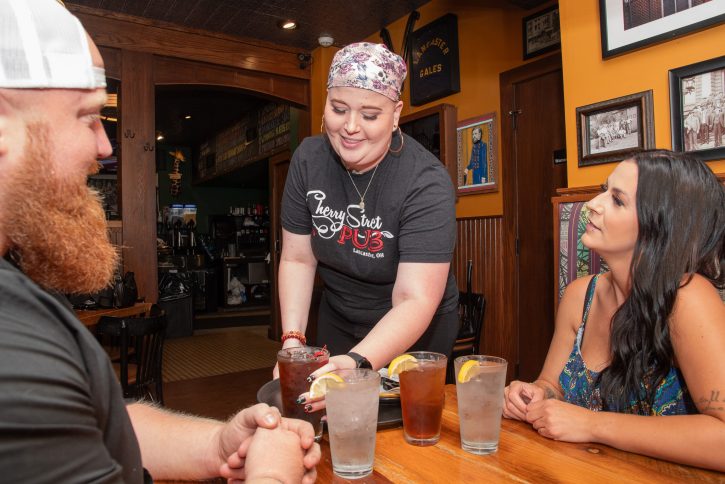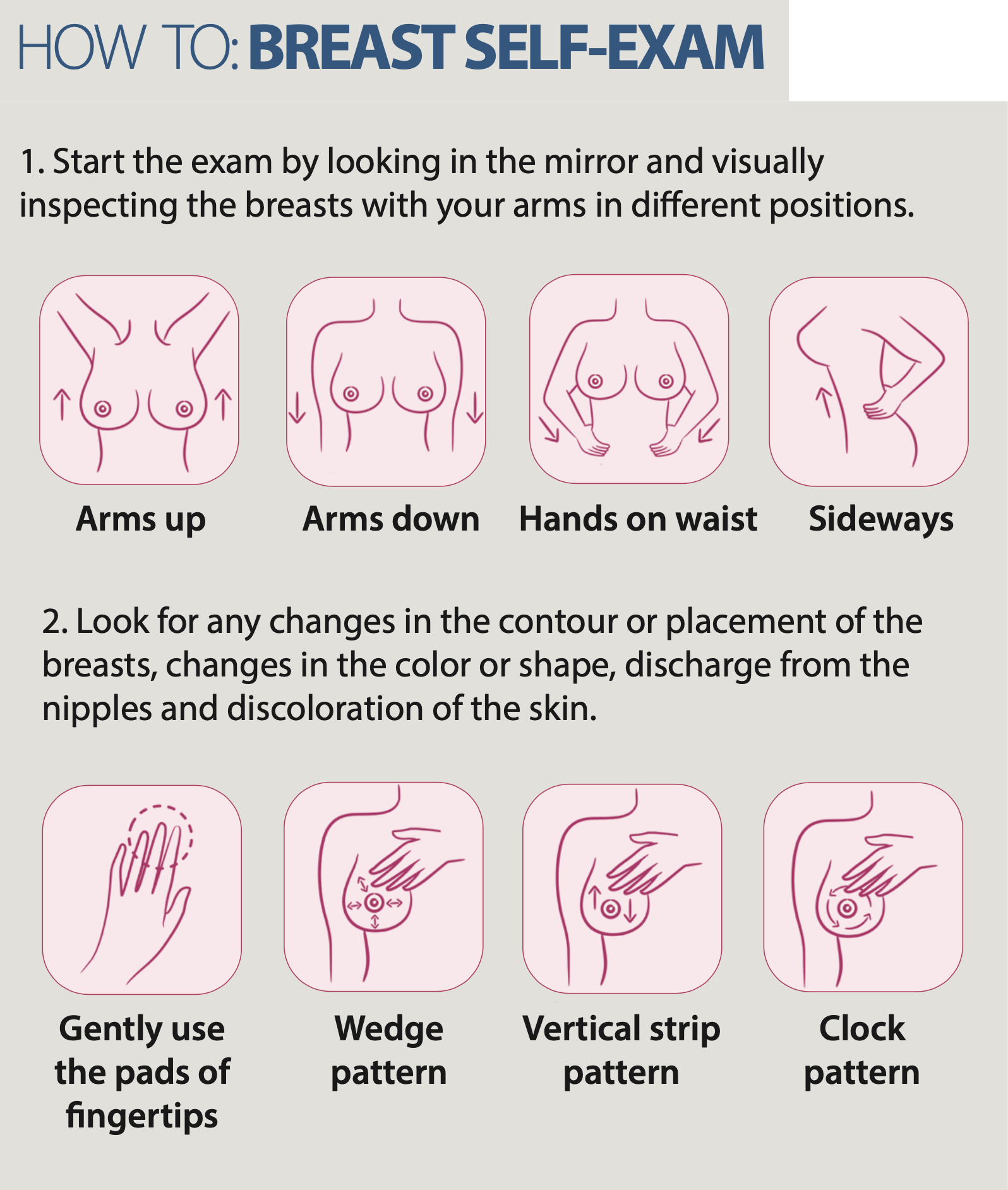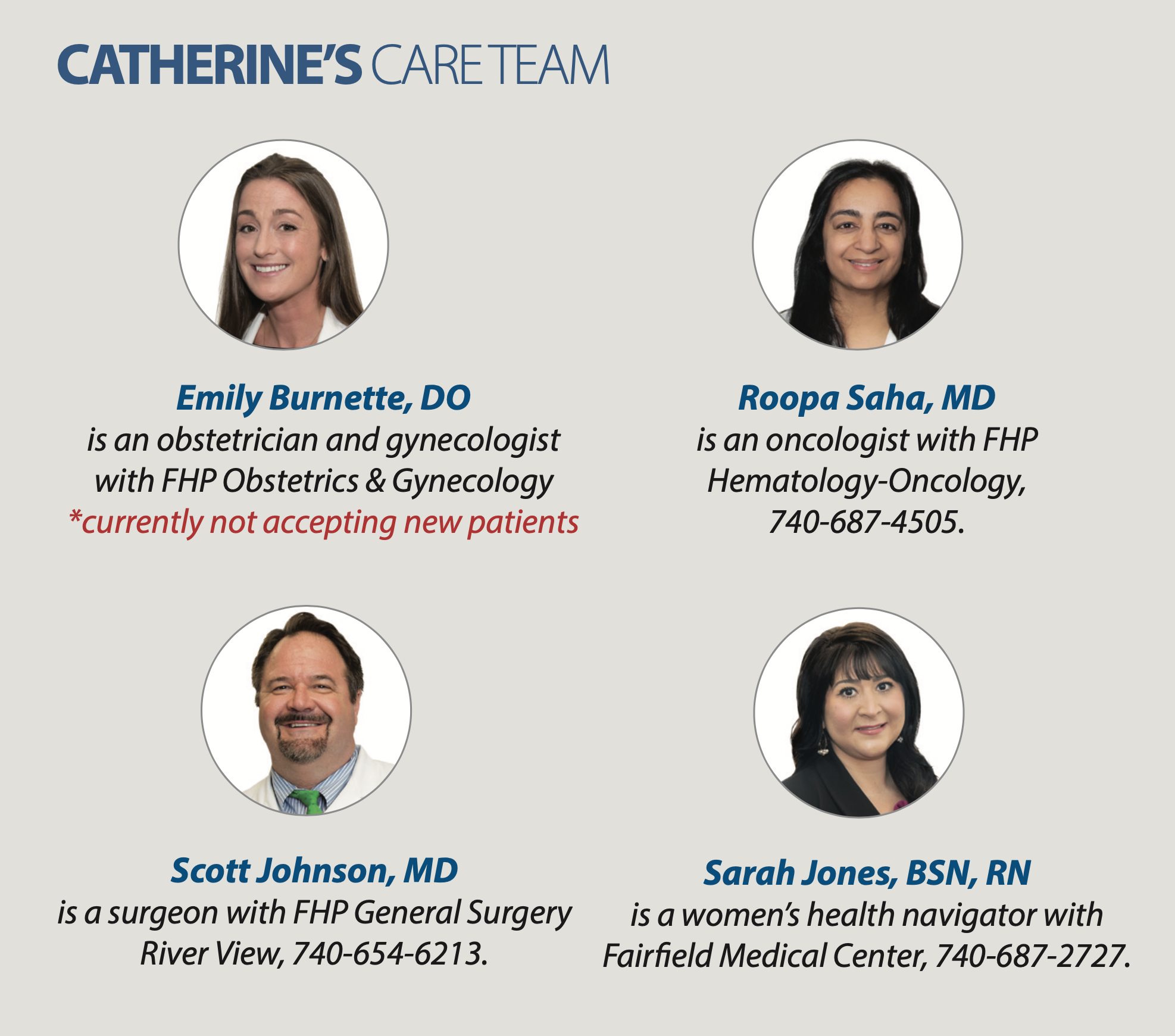
Article originally published Fall 2023 in The Monitor magazine.
As the daughter of a nurse, Catherine Brock, 33, was taught early on about the importance of regular breast self-exams in the detection of cancer. So when her fingers grazed across an unfamiliar lump during a self-exam earlier this year, Catherine tried not to panic – but she didn’t brush it off either. “The first thing I did is call Dr. Emily Burnette, my favorite doctor, because she’s the one I feel most comfortable with,” Catherine said. “I really appreciate Dr. Burnette’s office taking my concern seriously. It makes me really confident that if anything were to happen to my sisters, that office would take care of them.”
 Fairfield Healthcare Professionals Obstetrics & Gynecology and Emily Burnette, DO, were quickly able to get Catherine in for an initial appointment, where they directed her to Women’s Health at FMC River Valley Campus for a mammogram and an ultrasound. The following week, Catherine met with Scott Johnson, MD, of FHP General Surgery River View for her breast biopsy. Three days later, Catherine received her breast cancer diagnosis.
Fairfield Healthcare Professionals Obstetrics & Gynecology and Emily Burnette, DO, were quickly able to get Catherine in for an initial appointment, where they directed her to Women’s Health at FMC River Valley Campus for a mammogram and an ultrasound. The following week, Catherine met with Scott Johnson, MD, of FHP General Surgery River View for her breast biopsy. Three days later, Catherine received her breast cancer diagnosis.
“It was scary, but after the initial shock of finding something that’s not supposed to be there, I said, ‘OK, this is reality now. Got to deal with it and move forward,” Catherine said.
Some healthcare professionals, including Dr. Burnette, now recommend that women receive annual mammograms at age 40, earlier than previous recommendations of age 45. A physician referral is not required to schedule a mammogram for women 40 and older.
“It is important that women participate in regular breast cancer screenings, as breast cancer is the most commonly diagnosed cancer in women in the United States, and the second-leading cause of cancer death in American women,” said Dr. Burnette, who also recommends clinical breast exams every other year beginning at age 25. “Ideally, breast cancer screening decisions should be made after a conversation between the patient and their provider.”
Sarah Jones, BSN, RN, a women’s health nurse navigator at FMC who works with patients like Catherine, said early detection is key when it comes to survivorship. According to the American Cancer Society, the five-year survival rate is 99 percent when breast cancer is detected at a localized stage.
“When breast cancer is found early, while still small and confined to the breast, it is much easier to treat, and the chance that treatment will be successful, resulting in being cancer-free long term, is great,” Sarah said. “Being diligent with routine breast cancer screenings is the most reliable way to achieve early detection, ideally long before a lump can even be felt by the woman or her provider.”
With a mother in the healthcare field and three younger sisters, Catherine has always been aware of the importance of women’s health screenings, especially due to her family history of breast cancer in her aunt and great-grandmother.
 “We always had the waterproof ‘How-to Breast Exams’ in the shower, the ones that hang on the showerhead. I do self-exams regularly enough that I knew it [the lump] hadn’t been there even four months before,” Catherine said.
“We always had the waterproof ‘How-to Breast Exams’ in the shower, the ones that hang on the showerhead. I do self-exams regularly enough that I knew it [the lump] hadn’t been there even four months before,” Catherine said.
For her treatment, Catherine is undergoing an initial 12-week round of chemotherapy. After the first round of chemotherapy, she will have a lumpectomy to surgically remove the cancer, then immunotherapy. The final step of her treatment is radiation therapy to further reduce the risk that the cancer will return.
Catherine’s treatment plan is being managed by Roopa Saha, MD, of FHP Hematology-Oncology, whose “very calming, very grounding personality” has helped reinforce Catherine’s trust in the medical oncologist’s advice. Regarding her experience with Sarah, Catherine said, “she takes anything I say very seriously, but she does keep it lighthearted enough to where I don’t panic.”
Catherine’s family and friends have also played an important role in her treatment, from her mother carefully watching over her, to her father driving her to her appointments and suprising her with her favorite snacks to quell her “chemo cravings.” Catherine’s work family at Cherry Street Pub, a bar and grill in Lancaster where she has worked as a waitress for almost two years, is also a major component of her support system.
“They set up a fund for me the moment I told them [about the diagnosis],” Catherine said. “My managers, Brooke Sells and Zane Lawrence, have started this journey with me, and are going to be there for me when I finish it.”
Catherine is now using her experience to encourage others to schedule important appointments and screenings, and to not hesitate to seek medical advice if they have a concern. “It can be unsettling to find something and worry that you might be overthinking it, but don’t be scared,” she said. “Get it checked out no matter what.”
If you are due for a mammogram, don’t wait. To schedule your mammogram today, call Central Scheduling at 740-687-8666.
